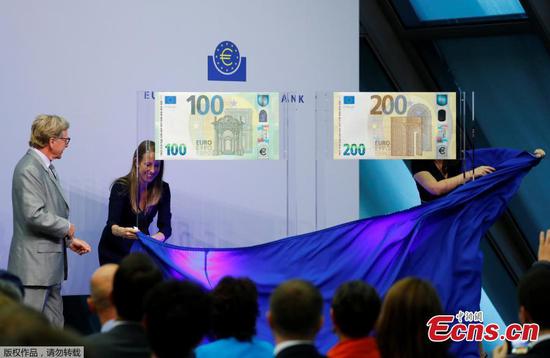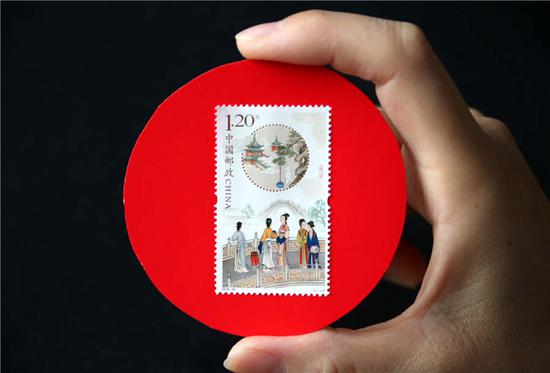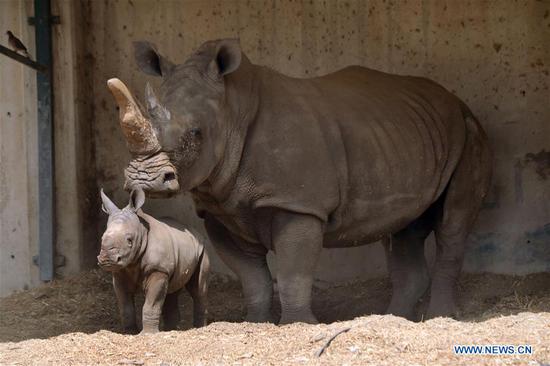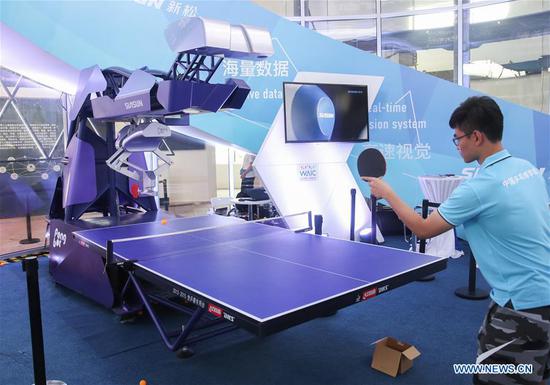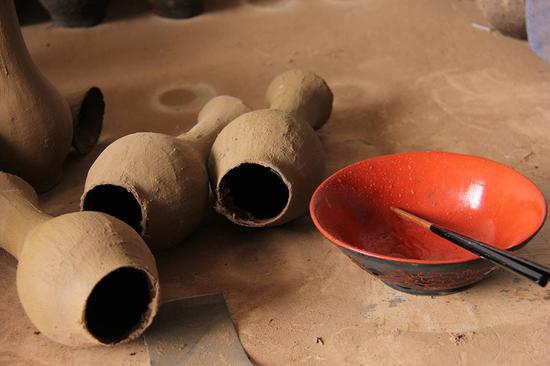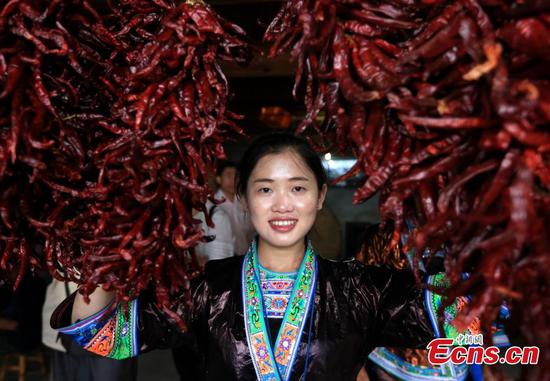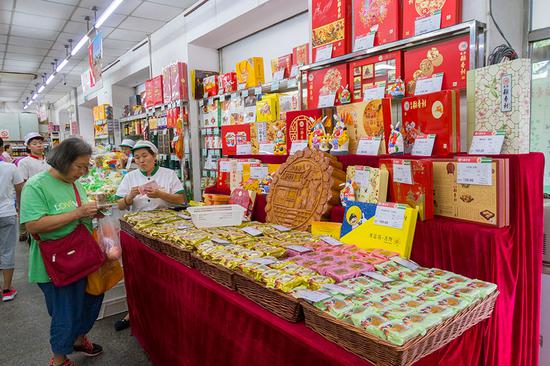
A consumer shops for mooncakes packaged in attractive gift boxes in the run-up to Mid-Autumn Festival at a Daoxiangcun store in Beijing in August. (Photo by Zhao Rong/for China Daily)
Daoxiangcun seeks to popularize Chinese snacks among youth
Traditional Chinese pastry-maker Daoxiangcun is innovating its recipes and enhancing its packaging to popularize its 245-year-old culinary heritage among the country's young consumers.
Beijing-based Daoxiangcun's move is part of broader efforts to refurbish the image of traditional Chinese snacks amid a growing fetish for Western desserts.
Young Chinese consumers' rising appetite for foods such as mille crepes from Lady M, a Shanghai cake chain, and similar items sold at Kiss the Tiramisu in Beijing's hipster haunt Sanlitun, is pushing traditional snack-makers to rethink their marketing strategies, insiders said.
They would want to understand why consumers such as Chen Jinhao, 28, a finance professional in Shanghai, don't prefer to eat Chinese snacks.
"The traditional pastries are boring," said Chen. She would not mind queuing for half-hour to lay her hands on a Lady M crepe though. "Most cake shops have a nice dining environment. But traditional pastry joints are usually just takeaway windows. Some sell by weight at supermarkets, without any informative packaging. They have been doing so for years now."
Daoxiangcun is determined to change all that. In August, it set up Daotian Riji, a new cafe-like store that sells cake slices. It also offers various Chinese teas to go with other pastry foods. The brand does not include coffee options on its menu - an attempt to sensitize younger consumers to the essence of Chinese pastry, without any Western drinks influencing their tastebuds.
"Given the ongoing consumption upgrade trend in China, we hope to attract more diverse consumers to Chinese pastry. That's why we started Daotian Riji to promote the aesthetic value of the Chinese dessert in the modern age," said Wang Juanshi, deputy general manager of Beijing Daoxiangcun Food Co Ltd.
"The biggest feature is the new shop offers handmade desserts that are made-to-order. Consumers can pick them up and eat in the café."
Huang Mingyong, director of Foodmate, a Shaoyang, Hunan province-based food technology research institute, said innovation is the only way that traditional Chinese snacks and desserts can survive in the digital age.
"Chinese desserts need to become healthier and easier to preserve," he said. "Food companies need to make better use of their cultural heritage; they also need to improve their packaging design."
For Daoxiangcun, innovation does not mean leaving the traditional recipe behind. This year's Mid-Autumn Festival, aka Mooncake Day, which falls on Sept 24, will see Daoxiangcun sticking to its tradition. "We can't lose our tradition, and our core value is honesty," Wang said. "The key to maintaining vitality is to innovate while being connected to our roots. A modern enterprise still needs to preserve the traditional craft and the spirit of craftsmanship."
Wang said the brand will stick to handmade Beijing-style mooncakes made with traditional ingredients like nuts, dried oranges, rose buds and osmanthus.
The mix of modernity and history appears to appeal to some young consumers such as Wang Wei, 24, a Ningbo-based office worker, who loves mooncakes. In the runup to Mid-Autumn Festival every year, he used to travel to Hong Kong just to buy eggcustard mooncakes from Peninsula Hong Kong Hotel. This year, however, he would buy traditional mooncakes made creatively and sensibly.
"A few years ago, many mooncake makers were desperate to innovate their recipes, so they stuffed fish, shrimp and beef into their pastry. It was an absolute disaster," Wang said.
Instead of doing such crazy experiments, bakeries' innovations should focus on making desserts healthier with less sugar and transfats, he said.














